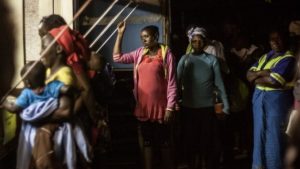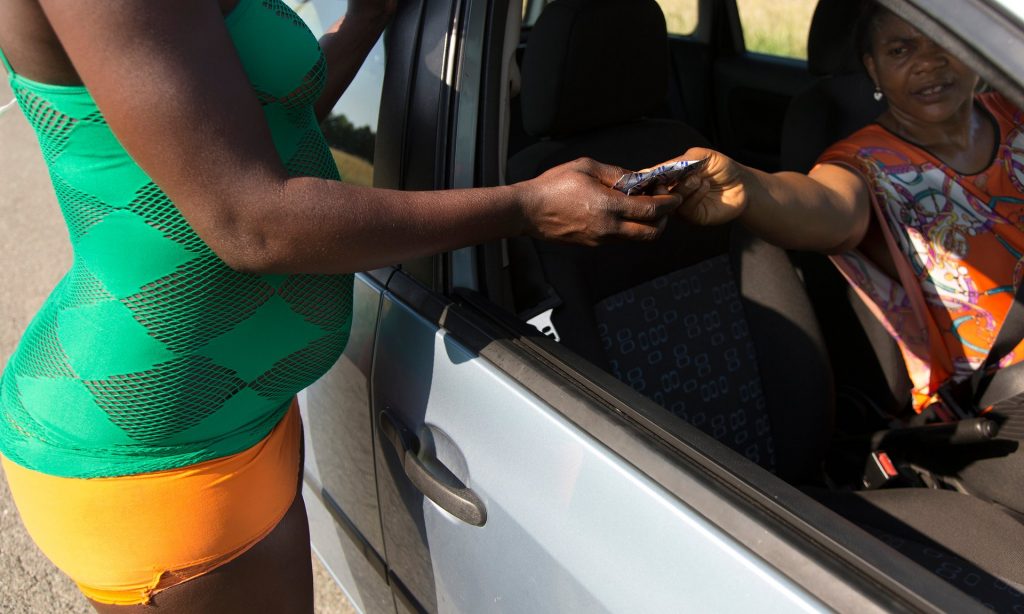
Women and girls as young as 12 from Kenya’s countryside are being forced into sex work to support families affected by prolonged drought. They have little or no education and travel at least 50 kilometers (30 miles) to reach urban areas, working in unsafe conditions far from their homes.
“Since I was raped, I entered into prostitution, because I saw that is something that my family depends on,” a 24-year-old mother told the International Rescue Committee (IRC). “It is not something good, but the need to care for these children is what forces me, because I don’t have anywhere else to run to,” the woman said.
The IRC has been working in Turkana, a region in northwestern Kenya with over 276,000 people in need of food assistance. Turkana, which borders both Uganda and South Sudan, also suffers from Kenya’s second-highest HIV infection rate, according to Mercy Lwambi, the women’s protection and empowerment manager for IRC.
The impact of drought on rural communities such as those in Turkana’s countryside can be particularly harsh. In addition to soaring food prices, rural families face decimated livestock and diminished crops. With grim prospects for survival and a dire need for money, young girls find themselves in early marriages, child labor and forced prostitution.
Rampant Abuse
As crippling drought lingers, survival sex, in particular, has proliferated. Child sex workers in Turkana make, on average, about 50 shillings, or less than 50 cents, per client. But it’s not uncommon for no payment to be made or for money to be stolen from the girls.
“Most of the time, their clients steal the little money they give them. So, their clients pay them for the work, then beat them up or take the money, or their clients intoxicate them with alcohol and have sex without pay,” Lwambi said.
Without a support system, girls trapped in sex work face the constant risk of beatings, psychological abuse and sexually transmitted diseases, particularly HIV.
In addition to prostitution, the IRC has also documented an uptick in gender-based violence and the rape of children, underscoring how humanitarian crises disproportionately affect girls.
Helping With Support, Information, Protection
Until root causes are addressed, IRC acknowledges that eradicating survival sex isn’t realistic. So, they focus on providing support, information and protection. Outreach activities include a mix of clinical care and psychological assistance.
Education on safe sex practices is central to IRC’s work, and helping girls look out for one another is another important strategy.
“So telling them to work in groups if they have work, to work in groups so that, if they are two or three, the chances of them being taken advantage of by a client…is reduced,” Lwambi said.
Slow Government Response
The government of Kenya needs to do more to protect young girls ensnared in sex work, according to Lwambi.
Subsidies could go a long way toward protecting Kenya’s most vulnerable populations, Lwambi said.
“For sex workers, the girls engaged in sex work, we are looking for the government to provide for these families for food or safety net programming so that they’re able to have resources to be able to take care of their daily needs,” she said.

